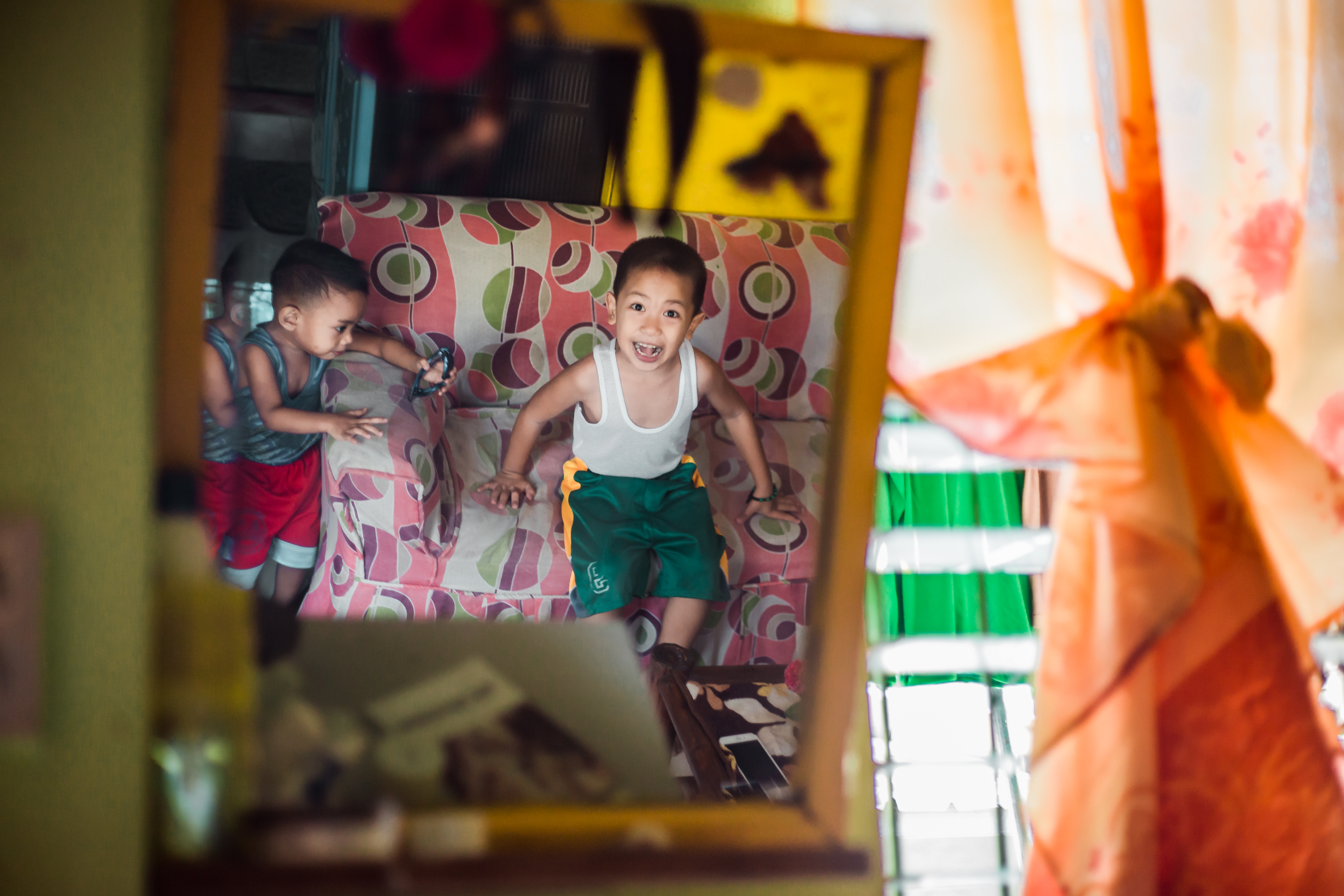It’s nine a.m. in the Fabiano residence; clothes are left drying outside, the washing machine rumbles faintly, and a cool gentle breeze surrounds the small area. 50-year-old Ate Rosalinda turns off the television and welcomes us, students yet strangers, inside her humble home. As we remove our shoes, we are welcomed by three-year-old Angela, who giggles behind her mother’s back, and two-year-old Mikhael, who gazes at us suspiciously hiding himself with a toy gun larger than his face.
All is well, as it should be; and today, we observe the simple and ordinary life of the Fabiano family. It’s a normal family situation, but behind the curious smiles, and the plethora of Hello Kitty trinkets found in all corners of the room, is a story of struggle and hope for the Fabianos.
I curiously look around the living space and the first thing I notice is a piece of yellow paper containing the family’s “house rules.” Written are generic house rules like ‘be responsible,’ ‘no screaming,’ and ‘no smoking.’ Ironically, a pack of cigarettes is beside the note to which Ate Rosalinda says, “Yung anak ko ‘yung nagsulat niyan. Nasa Manila siya.”
The stay-at-home grandmother, along with her husband who, according to her, drinks often, has four kids—three of them work in construction while the youngest studies somewhere in Manila. I didn’t get to take note of exactly where the youngest studies as I was distracted by Ate Rosalinda’s grandchild, Mikhael, who eagerly starts shooting his toy gun at our direction.
After a series of awkward and stagnant topics regarding what her family is like or what they do, forced input about the weather, and awkward silences occasionally killed by the hyperactive and no-longer-shy grandchildren, we raise a question that leads to a sharing of the family’s personal struggle.
We ask, “Paano po ‘yung buhay niyo bago kayo lumipat dito?”
Ate Rosalinda replies, “Walang kabuhayan [sa Silangan] tapos ‘yung asawa ko, walang trabaho, at ‘yung mga anak ko, pa extra-extra lang doon at nag-aaral pa ‘yung dalawa dati.”
During the conversation, she brings up the Ondoy tragedy which left parts of Manila in a state of calamity in 2009. “Madami rin kami nawala sa Ondoy eh,” she shares. “Wala kaming natirang gamit … nung inabot na kami ng Ondoy, nabaha. Kumuha na kami ng bahay dito kasi ‘di kami mapakali doon eh. Pagdating ng ulan, ‘di kami makatulog.”
After having their belongings wiped away and leaving their family with nothing, they found shelter in public schools and barangay halls. With the support of the government, Ate Rosalinda and her family was able to have a fresh start.
“Dito, kahit umulan, hindi na kami kinakabahan. Panatag na ‘yung kalooban namin dito,” she shares with a tone of gratitude.
In having a stable home, the Fabiano family need not worry again about their belongings being wiped away by floods. They can now sleep in comfort knowing they have a roof to protect their family’s heads as they sleep soundly.
With Ate Rosalinda’s stories and countless insights accompanies by noises from rowdy grandkids, we lose track of time and suddenly realize it is already time to leave. It’s 11 a.m., the household is surrounded by the aroma of the adobo that Ate Rosalinda has been heating, the rice cooker alarm goes off, and Mikhael and Angela’s mother tries to get a hold of them to prepare them for a bath.
It’s just a normal day and all is well as it should be in the Fabiano residence.

